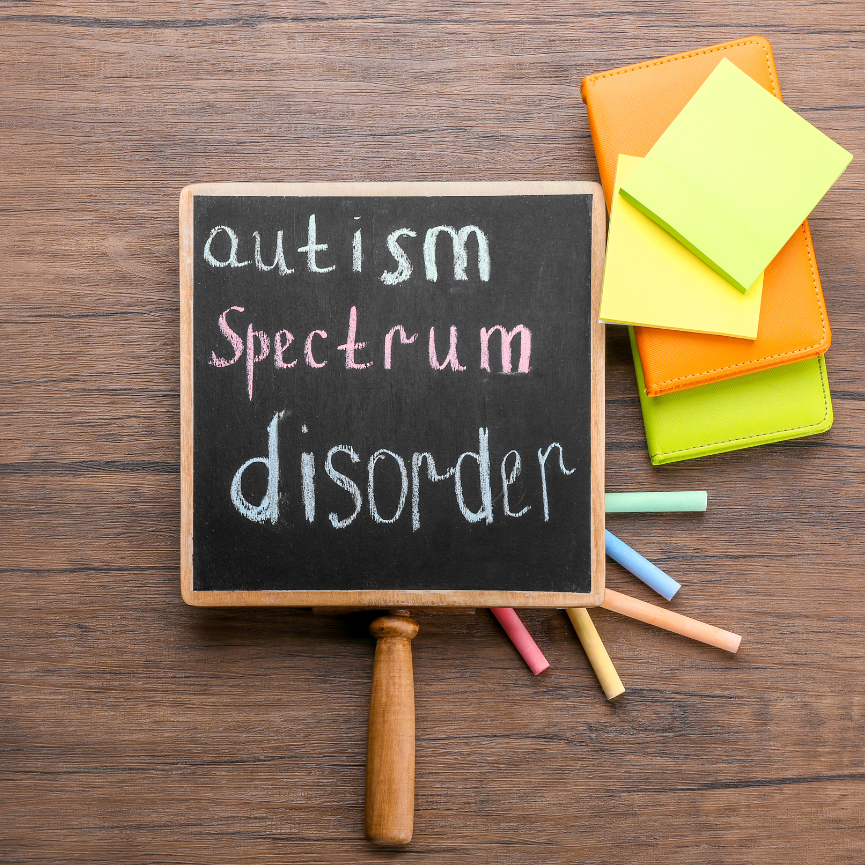
- May 18, 2024
- 152 Views
- 0 Comments
Autism Spectrum Disorders: Insights And Information
Autism Spectrum Disorders (ASD) are a complex group of neurodevelopmental disorders that significantly impact an individual's social communication and behavior. In this extensive guide, we aim to provide in-depth insights into ASD, covering its definition, symptoms, diagnosis, causes, treatments, and support strategies. By gaining a better understanding of ASD, we can collectively foster a more inclusive and supportive environment for individuals on the autism spectrum.
Definition and Types of Autism Spectrum Disorders
Autism Spectrum Disorders encompass a diverse range of conditions that affect an individual's ability to engage in social interactions, communicate effectively, and display appropriate behaviors. The term "spectrum" recognizes the wide variation in challenges and abilities among those diagnosed with ASD. Within this spectrum, various subtypes exist, including autistic disorder, Asperger's syndrome, pervasive developmental disorder-not otherwise specified (PDD-NOS), and childhood disintegrative disorder. Understanding these subtypes helps us recognize the unique characteristics and needs of individuals with ASD.
Symptoms and Early Signs
Recognizing the early signs of autism is of paramount importance for early intervention and support. Common symptoms include difficulties in forming and maintaining social relationships, engaging in repetitive behaviors, displaying limited interests, experiencing delayed speech or language skills, showing sensitivity to sensory stimuli, and demonstrating resistance to changes in routines. Being aware of these indicators enables parents, caregivers, and educators to seek professional evaluations and interventions promptly, which can significantly impact a child's development and quality of life.
Diagnosing Autism Spectrum Disorders
Accurate diagnosis is critical for providing appropriate interventions and support. Diagnosing ASD involves a comprehensive assessment that takes into account behavioral observations, medical history, and developmental milestones. Multidisciplinary evaluations conducted by specialists, such as pediatricians, psychologists, and speech therapists, are instrumental in reaching an accurate diagnosis. Early screening tools and diagnostic criteria, such as those outlined in the Diagnostic and Statistical Manual of Mental Disorders (DSM-5), assist professionals in identifying autism at an early age, paving the way for timely interventions.
Causes and Risk Factors
Despite significant advancements in research, the exact cause of ASD remains elusive. However, evidence points to a combination of genetic and environmental factors contributing to its development. Genetic mutations, advanced parental age, prenatal exposure to certain substances, and complications during pregnancy or birth are some potential risk factors associated with ASD. Understanding these factors not only helps us grasp the complexities of autism but also offers opportunities for implementing preventive measures and personalized treatment approaches.
The Role of Genetics in Autism
Genetics plays a profound role in the development of autism. Researchers have identified numerous genes associated with ASD susceptibility. Understanding the genetic basis of autism is essential as it can potentially lead to the development of targeted therapies and interventions tailored to an individual's specific needs, bringing us closer to personalized treatments for ASD.
Environmental Triggers and Autism
Beyond genetics, environmental factors also play a significant role in autism risk. Maternal infections during pregnancy, exposure to environmental toxins, and certain prenatal complications have been linked to an increased likelihood of ASD. By identifying and understanding these environmental triggers, we can implement measures to reduce their impact and lower the prevalence of autism.
Therapies and Interventions
Early intervention is a cornerstone of effective support for children with autism. Implementing evidence-based therapies can significantly enhance their development and adaptability. Applied Behavior Analysis (ABA), Speech-Language Therapy, Occupational Therapy, and Social Skills Training are among the commonly used therapies that address specific challenges associated with ASD. This guide will delve into the principles, benefits, and potential outcomes of each therapy, empowering parents, caregivers, and educators with the knowledge to make informed decisions about interventions for individuals with ASD.
Supporting Individuals with Autism
Creating a supportive environment for individuals with ASD involves understanding and embracing their unique needs and challenges. Parents, educators, and caregivers play a pivotal role in promoting inclusion and fostering growth in individuals on the autism spectrum. By providing practical tips and strategies, this guide equips readers with the tools to support and advocate for individuals with ASD in various settings, including educational institutions, social contexts, and within the community.
Life on the Autism Spectrum
As individuals with autism transition into adulthood, they face unique challenges related to education, employment, relationships, and independent living. Exploring the experiences of adults with ASD and sharing success stories can help promote awareness and understanding of their capabilities and potential contributions to society. By shedding light on the triumphs and challenges faced by adults on the autism spectrum, this guide aims to inspire a more accepting and accommodating society.
Understanding Autism Spectrum Disorders is pivotal in creating a compassionate and inclusive society. By spreading awareness and knowledge about ASD, we can break down barriers and promote acceptance, support, and empowerment for individuals on the autism spectrum. Together, let's work towards a world that celebrates the diversity and strengths of all its members, regardless of their unique neurological characteristics.



Comments - 0 comments till now